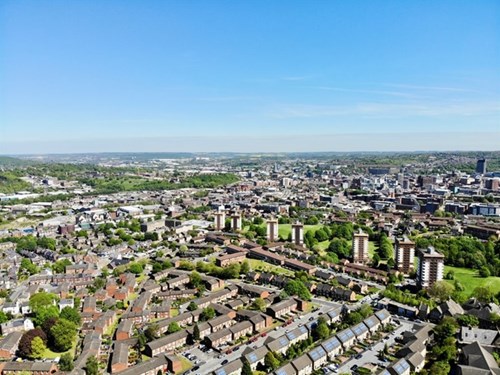Carbon neutral by the end of the next decade

It’s no secret, in any city of the world, that environmental issues cause controversy and difference of opinion. The issues, consequences and actions are just so complex and permeate so many levels of urban life that it’s impossible to have solutions that suit everyone.
With that said, as a city we have committed to become carbon neutral by 2030 (shortening the original target by 20 years), declared a Climate Emergency, and announced a citizens’ assembly to help collaborate on finding the best ways to address our problems.
This is all backed up and made more engaging for the public by the intertwining of environmental innovation into infrastructure planning (such as Matilda St Pocket Park and Grey to Green developments), cultural projects like The Outdoor City and efforts to promote conservation, commercial negotiations (such as those between landlords/occupiers) and strong partnership/dialogue with third sector organisations like the Sheaf & Porter Rivers Trust, Don Catchment Rivers Trust or The River Stewardship Company and the many Friends' Groups across the city (Sheffield boasts one of the largest numbers of 'Friends Of' groups in the UK in comparison with other major cities).
Moreover is the inclusion of heritage and landscape as part of the solution to environmental issues, of which the Sheffield Lakeland Project is a fantastic and leading example of a way that well-planned and imagined aspects of a natural landscape in a city can have a transformative impact for people.